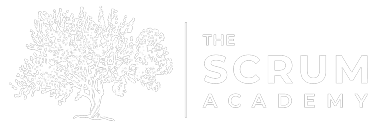
Sonoran desert sunset in Phoenix Arizona featuring a large Saguaro cactus. silhouette concept
Letting Go of Knowing – Scrum Gathering Phoenix 2015
“I could be wrong” Mike Cohn at the Scrum Gathering Phoenix
At the beginning of the month, I had the opportunity to attend the Scrum Gathering in Phoenix and present a session on Lift Off. It had been about two years since I went to a Gathering and I was SO happy that I attended because the conference re-energized and inspired me.
If highly recommend attending a Scrum Gathering if you have not had a chance to attend. The North American event is always held in the Spring (the destination will be Orlando in 2016) and the European Gathering is in the Fall (this year in Prague). This year, I was quite impressed with the quality of the speakers at the Scrum Gathering and I enjoyed the focus on the practitioners by the conference organizers.
Here are some of the things that I picked up and wanted to share.
- The role of the ScrumMaster is to stay neutral with respect to the Team’s self-organization. By letting go of the outcomes, a ScrumMaster can then support the Team in their choices. ScrumMasters must regularly ask themselves this question, “What is more important – to get the right solution or have the Team learn?”
- Use your soft skills to influence rebels and skeptics. According to Adele Maynes Romero, rebels break all the rules while skeptics are cautious on adopting new practices. While rebels were the initial adopters of Scrum and Agile, yet as Scrum becomes more mainstream the skeptics are much more comfortable with the ideas contained within Scrum and Agile. However, what was appealing to the rebels is not just a bunch of “the rules.” An answer for this rebels out there: leverage the rules so that you can be radically non-conforming with your work. NICE!
- Michael Sahota believes Agile and Scrum can be boiled down to a simple concept: “We value people.” When we loose track of the people, Michael feels we create a disengagement cycle that builds organizational debt (similar to design debt). The key to paying off the organizational debt is to first improve safety, build trust, establish authentic connection and build environment when people can feel vulnerable with one another.
- Patrick McConnell emphasized the importance of Servant Leadership for the ScrumMaster. What Patrick said that was most compelling was the ScrumMaster is first an agent for the Team and then be an agent for the organization. I found this perspective refreshing since too often the ScrumMaster feels their loyalties and priorities lie with the business.
- Extreme Programming practices were being re-emphasized by Brad Swanson. In this short talk, Brad emphasized the importance of developing and cross-training the Team members. His goal was to ensure that every member of the Team have a T-shaped skill profile – board exposure and ability to do different things for the business while have the ability to go deep in one area. His answer to developing this profile, everyone has a major and a minor.
- Alan Cyment introduced the concept of organic Agility and Agile gardeners for the business. The new goal for Scrum practitioners is to nurture, grow and shape the Agile practices in the business based on what will survive and thrive in the organization.
- Ron Quartel emphasized the important role of the ScrumMaster to watch the landscape for distractions and time wasting. It is crucial that any practice that wastes time be identified, discussed and acted upon during the Retrospective. Ron is also the originator of an idea called FAST Agile, a concept to scale Agile Teams.





